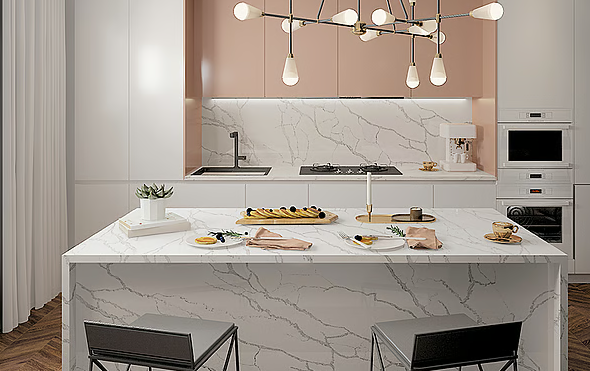Understanding Quartz Countertop Durability and Thickness
Quartz countertops are renowned for their sturdiness and long-lasting qualities, which make them a popular choice in kitchens and bathrooms. The thickness of the quartz slab plays a pivotal role in its durability and functionality. Standard thicknesses for quartz countertops range from 1 cm to 3 cm. Thicker slabs are generally more robust and less prone to damage such as cracking or chipping.
The Role of Thickness in Everyday Use
A thicker quartz countertop tends to handle daily wear and tear better than its thinner counterparts. For instance, a 3 cm thick countertop can support heavier weights and withstand impacts that might cause thinner surfaces to crack. It is crucial for areas with high usage or where heavy objects are commonly used. Data shows that countertops of 3 cm thickness have a significantly lower incidence of cracking compared to 2 cm countertops, especially in areas near undermount sinks or cooktop cutouts.
Impact of Thickness on Installation and Cost
Choosing the right thickness also impacts installation processes and costs. Thicker quartz slabs are heavier and may require additional support structures, which can increase installation costs. However, they often eliminate the need for edge buildups, which are necessary for thinner countertops to achieve a more substantial look. This balancing act between aesthetic desires and practical necessities is a key consideration for homeowners and designers alike.

Aesthetic Appeal and Functional Benefits
Thicker quartz slabs offer a bold and robust appearance, enhancing the visual impact of kitchen or bathroom spaces. They also provide improved structural integrity, reducing the risk of damage during everyday activities. This extra durability ensures that the countertop remains pristine over a longer period, thereby extending its lifespan and reducing the need for frequent replacements.
Key Considerations for Choosing Countertop Thickness
When selecting countertop thickness quartz, it is essential to consider both the aesthetic and functional requirements of the space. Aesthetic preferences might lean towards a sleeker, thinner countertop, especially in a modern design context, while practical considerations prioritize durability and maintenance. You can explore more about this topic and related options on this page.
Selecting the ideal thickness for your quartz countertop is not just a matter of personal taste but also a strategic decision based on the specific needs and conditions of your living space. Proper thickness ensures that your countertop is not only visually pleasing but also capable of standing up to the rigors of everyday use, maintaining its beauty and functionality for years to come.